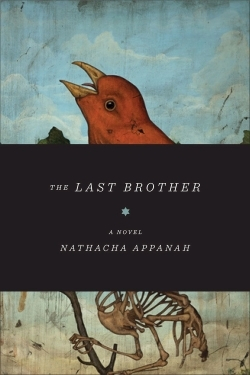The Last Brother
This story is like a mango: sweet, with a hard stone pit. “When you have lost…two beloved brothers on the same day, what are you? What word is there to say what you have become?” the narrator asks in this tale of “two children of misfortune.” One is himself, Raj, a nine-year-old boy native to the island, wild and lonely, and the other is his friend David, “a blond child lost amid the humid heat of Beau-Bassin,” the prison in which Jewish refugees are locked up when turned away from Palestine by the British Colonial Office. The book’s title could refer to either boy—Raj, the survivor of a flood that killed both his brothers, or to David, the golden-haired orphan who “was the answer to everything”—a playmate, a fellow sufferer, a surrogate brother.
In late 1944, Raj, whose father works at the prison, befriends David, who is his age. Exploring themes of loneliness, isolation, and love, Appanah weaves a story around the escape of both boys from brutality and violence. When a cyclone creates a breach in the security at the camp, Raj gets David to run away and tries to hide him from his cruel father. But his mother cannot protect them for long, and they flee into the forest, which offers both danger and refuge as Raj struggles to get them to safety.
Beautifully written and alluding to tales of Hansel and Gretel, this story captures “the magic and drama of childhood” as well as its terrors, fevers, and persecutions. It is narrated by Raj, now an old man, as he confronts his lifelong feelings of guilt over the way he made David leave the harsh but safe prison.
“Did he make that journey simply for my sake?” he wonders. Raj consoles himself with the thought that David was happy “to follow me, to do like me, not to imitate me but to learn from me,” like a protective brother.
If there is a flaw in this finely told tale, it’s in the first eight pages, when the narrator dreams of a grown-up David. Unfortunately, the voice sounds more like someone yearning for a former lover or a woman mourning a lost child than a man remembering a childhood friend. It’s the only false note. Once into the story, the reader realizes she is in the hands of a remarkable storyteller. Appanah is from Mauritius, where the novel is set. Fans of international literary fiction like Jamaica Kincaid’s Lucy and Yann Martel’s Life of Pi—or even Rudyard Kipling’s Kim—will no doubt enjoy this first novel.
Reviewed by
Trina Carter
Disclosure: This article is not an endorsement, but a review. The publisher of this book provided free copies of the book to have their book reviewed by a professional reviewer. No fee was paid by the publisher for this review. Foreword Reviews only recommends books that we love. Foreword Magazine, Inc. is disclosing this in accordance with the Federal Trade Commission’s 16 CFR, Part 255.

